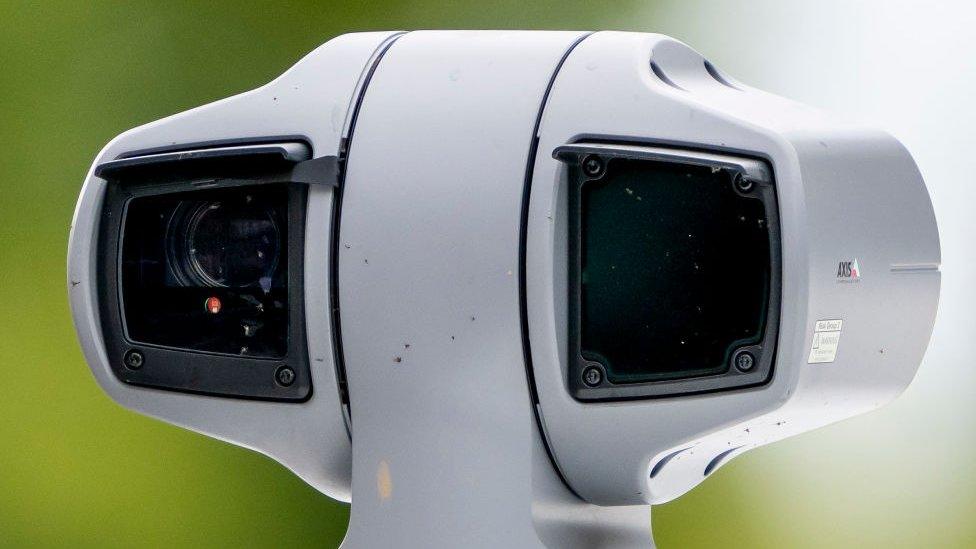Will face recognition cameras keep Croydon safer?
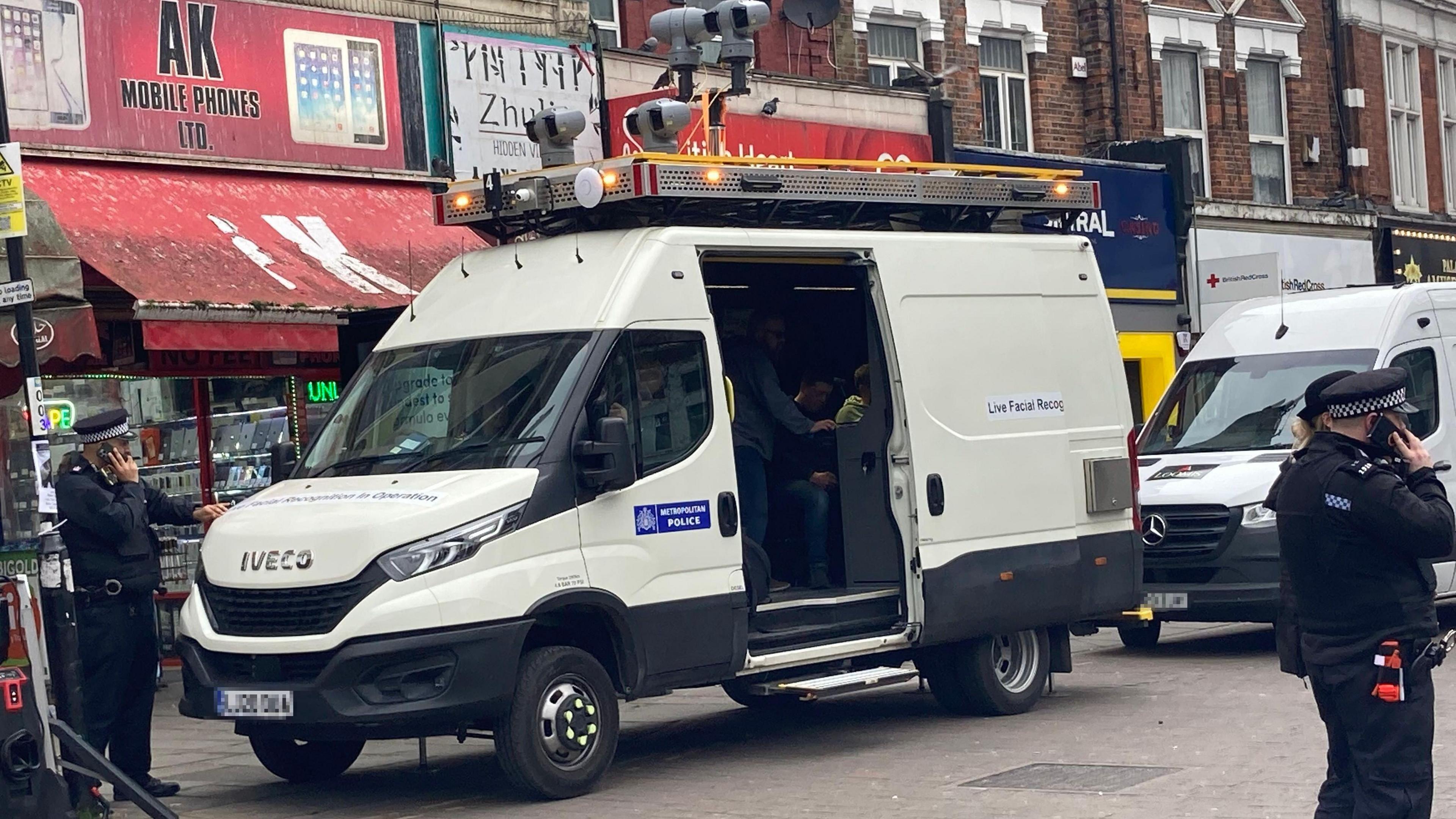
Live facial recognition cameras scan faces in real time and check them against a police watchlist, which can lead to immediate arrest
- Published
The summer heat always brings Croydon town centre to life, with a positive, lively atmosphere. However, some say the mood changes noticeably as the sun sets.
Shopkeepers say they are forced to hire extra security to prevent thefts, and that drug-related gang crime is prevalent.
The Met Police is using live facial recognition (LFR) to look for criminals, with fixed cameras being installed in Croydon for the first time anywhere in London.
The force says the technology will keep the streets safer, but Big Brother Watch said the scale of the surveillance was "alarming".
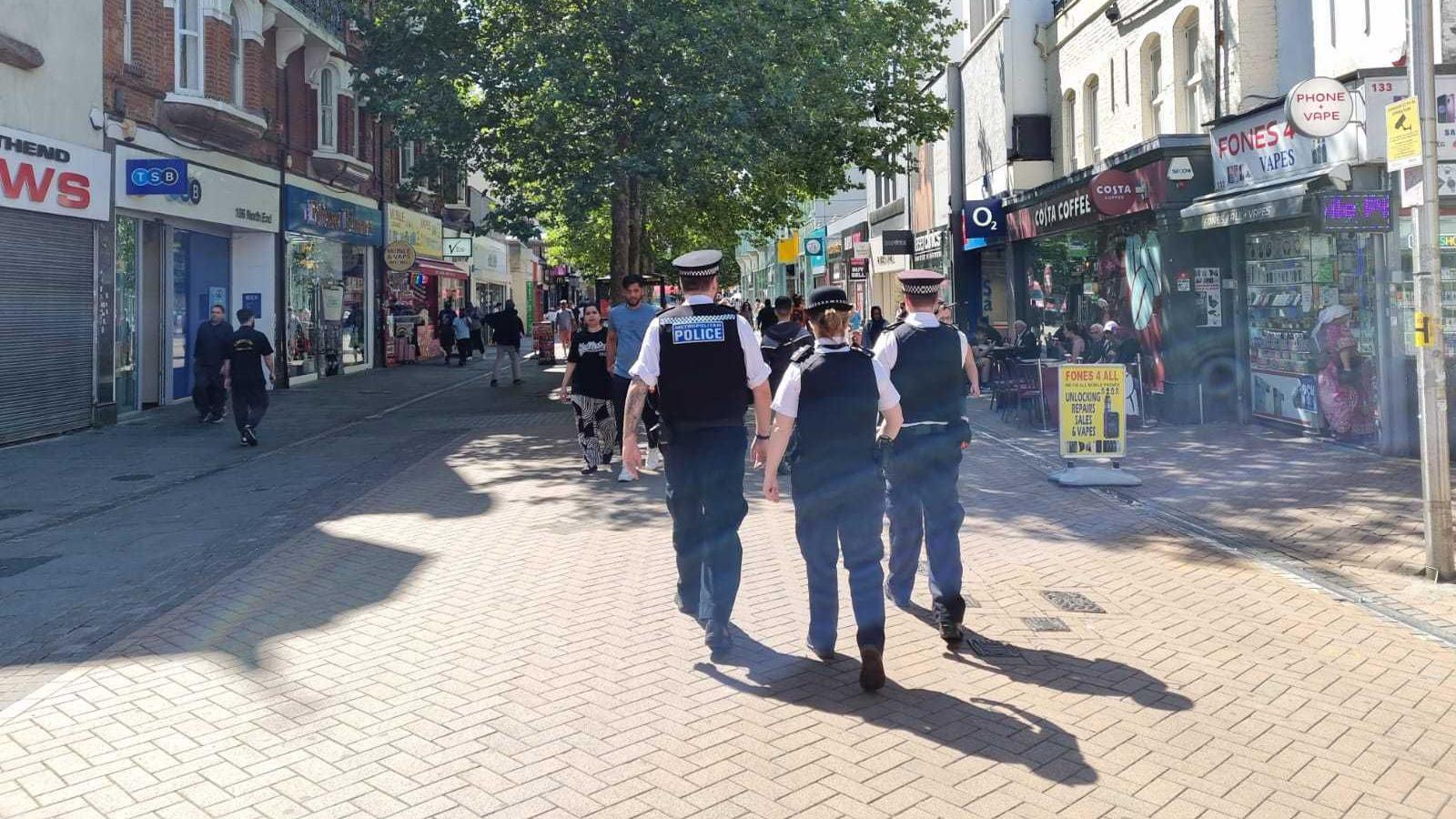
The Met believes use of facial recognition cameras will free up officer time
LFR cameras scan faces in real time and help police find those who are wanted.
In March, the Met announced it would install fixed facial recognition cameras on North End and London Road in Croydon, after previously trialling mobile devices.
The fixed LFR cameras look like regular CCTV but will only be switched on when the technology is in use, the Met says.
Mobile LFR has already been used in several London boroughs, including during the King's Coronation in 2023.
The Met says it's arrested more than 1,000 people by using the technology so far across London, including 93 registered sex offenders and several others in breach of court orders.
So far this year, LFR has scanned 1.5 million faces in London, leading to 459 arrests – roughly one for every 3,300 scans however more than half of the Met's so-called "true matches" did not result in an arrest.
Lindsey Chiswick, who leads the Met's facial recognition programme, said: "This technology is making London safer by removing dangerous offenders. It's saving officers valuable time and delivering quicker, more accurate results."
'After 4pm, it's different'
Live facial recognition cameras are something that shopkeeper Mohammed Kamzi welcomes, although he has concerns.
Mohammed has worked on North End for four years, a time he said has seen rising crime and waning police visibility.
"It's ok in the morning, we can manage with two staff members," said Mohammed, who owns U Fone.
"After 4pm, it's different. We need three or four people working because someone has to be ready to chase thieves while another watches the shop.
"We see crime here all the time," he added.
He said although the LFR cameras had benefits in terms of safety, he feels some customers aren't comfortable with it: "They feel anxious, like they've done something wrong."
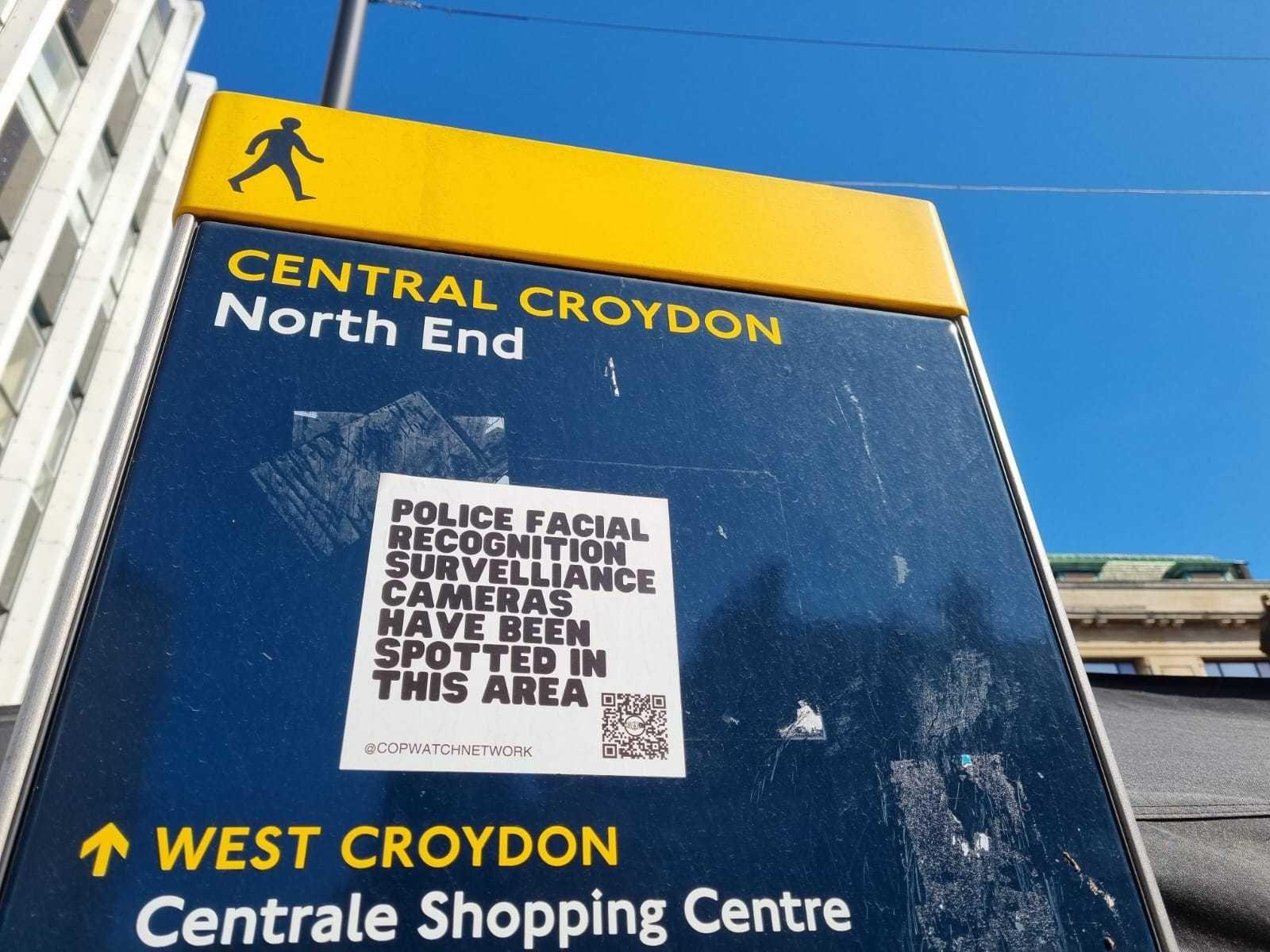
Campaigners and locals have criticised what they say is a lack of clear warning when facial recognition cameras are being used
Shane Barrett, a local resident, believes the technology could help, but questions its placement.
He said: "Croydon's getting worse, there are stabbings every other week. The cameras might help, but the stabbings happen on side streets and around Surrey Street, not North End."
Shopper Helen Matthews said she wanted more clarity from the police. "I can see it being useful, but we don't know how it works or when it'll be used."
'Dystopian effect'
Some civil liberties groups also have deep concerns.
Madeleine Stone, a senior advocacy officer at Big Brother Watch, said the new cameras would have "a chilling and dystopian effect on the high street".
Charlie Whelton, from human rights group Liberty, said the technology was being used without proper legal oversight. "It's a regulatory wild west," he said.
Mr Whelton warned there's currently no unified legislation guiding its use nationwide, and the cameras can be used to watch anyone.
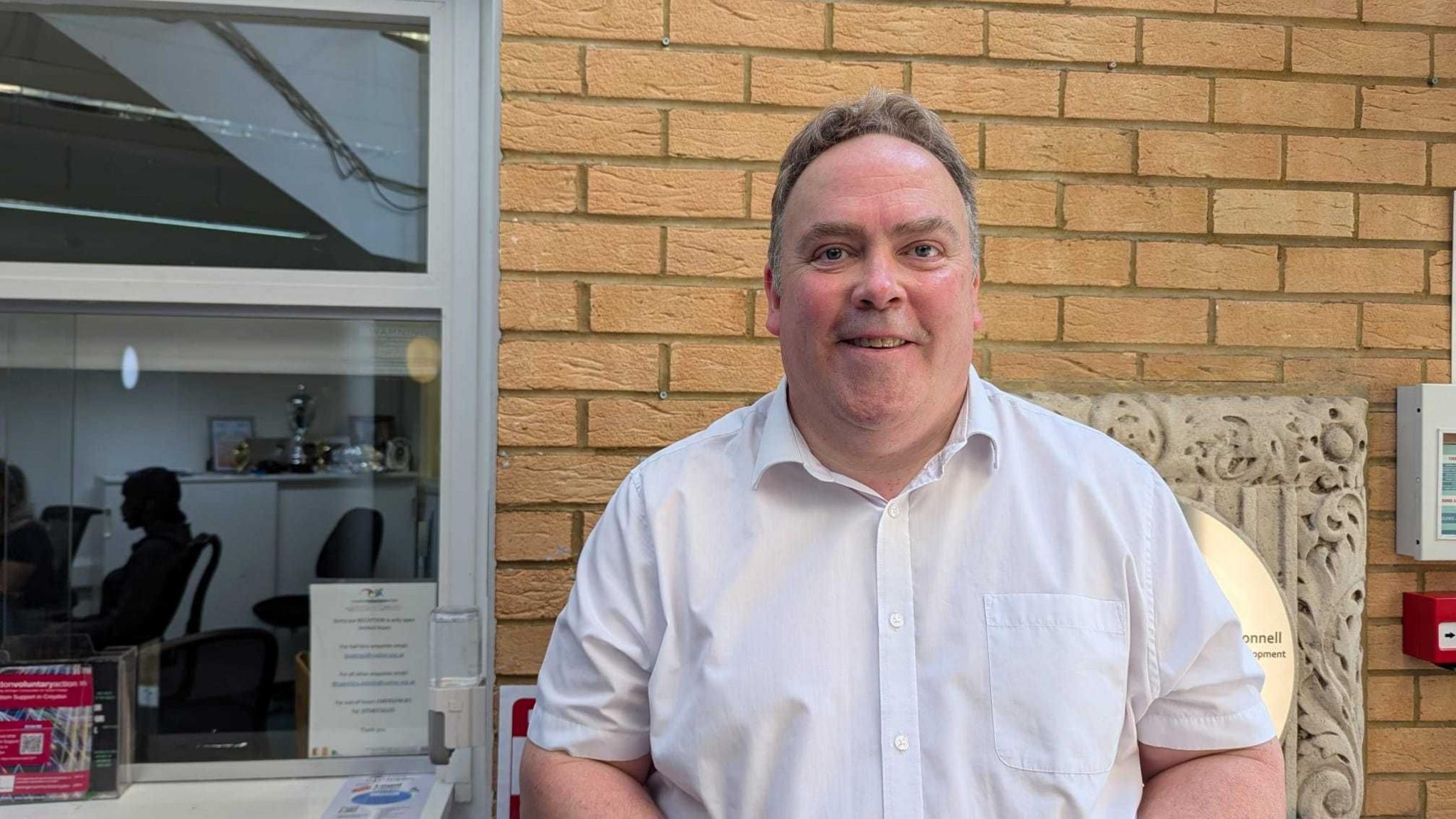
Croydon Mayor and LFR proponent Jason Perry said: "If you've got nothing to hide you've got nothing to fear"
The Met insists it has strict safeguards in place.
It says biometric data is permanently deleted if someone isn't on the watchlist and added that independent testing by the National Physical Laboratory found the system to be accurate and showed no significant bias based on race or gender.
A Met spokesperson said: "We're committed to making London safer by using technology to target the most dangerous offenders.
"We continue to engage with the public to explain how the technology works and to reassure people that strong privacy protections are in place."
Listen to the best of BBC Radio London on Sounds and follow BBC London on Facebook, external, X, external and Instagram, external. Send your story ideas to hello.bbclondon@bbc.co.uk, external
- Published4 July
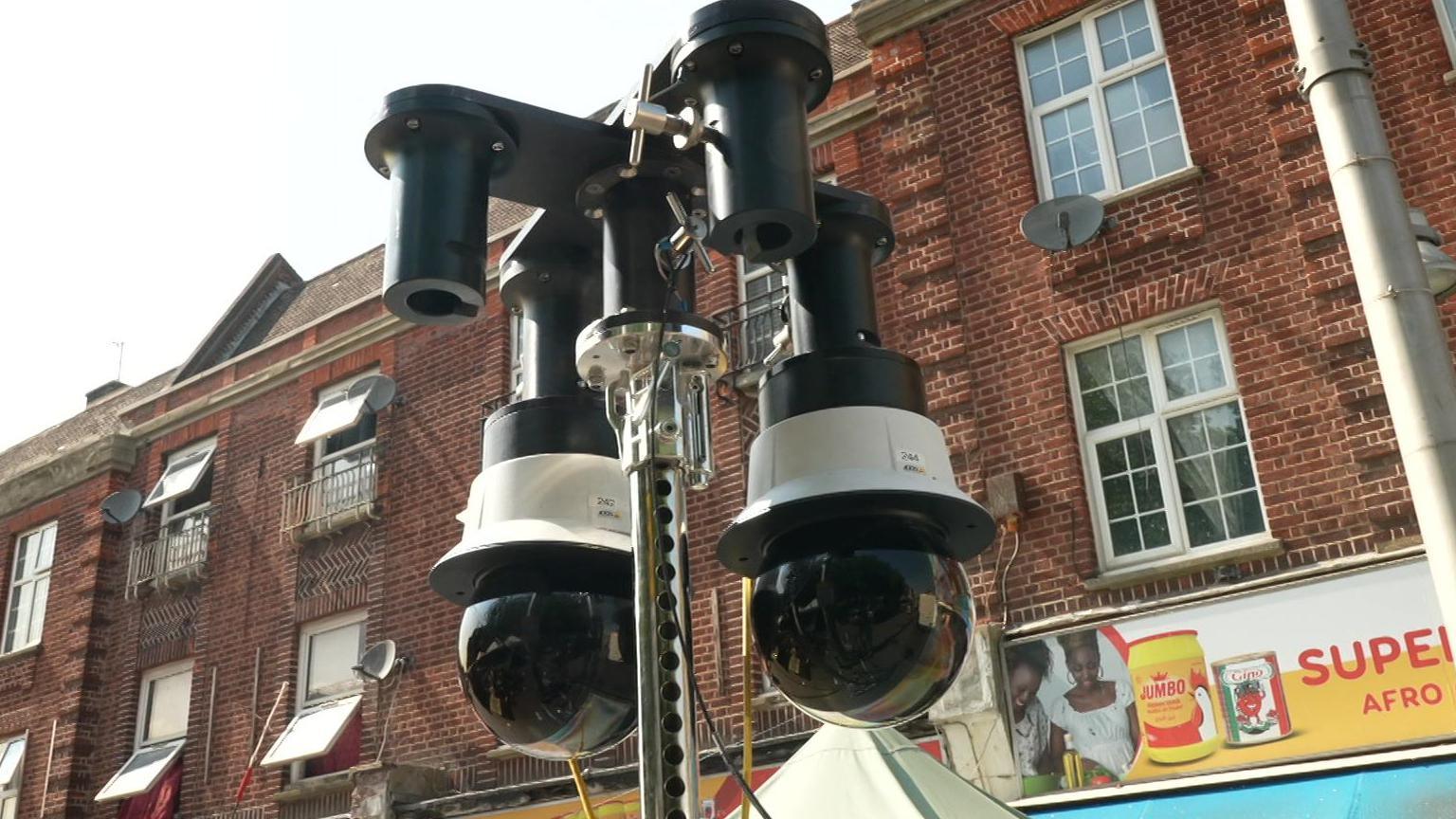
- Published30 March
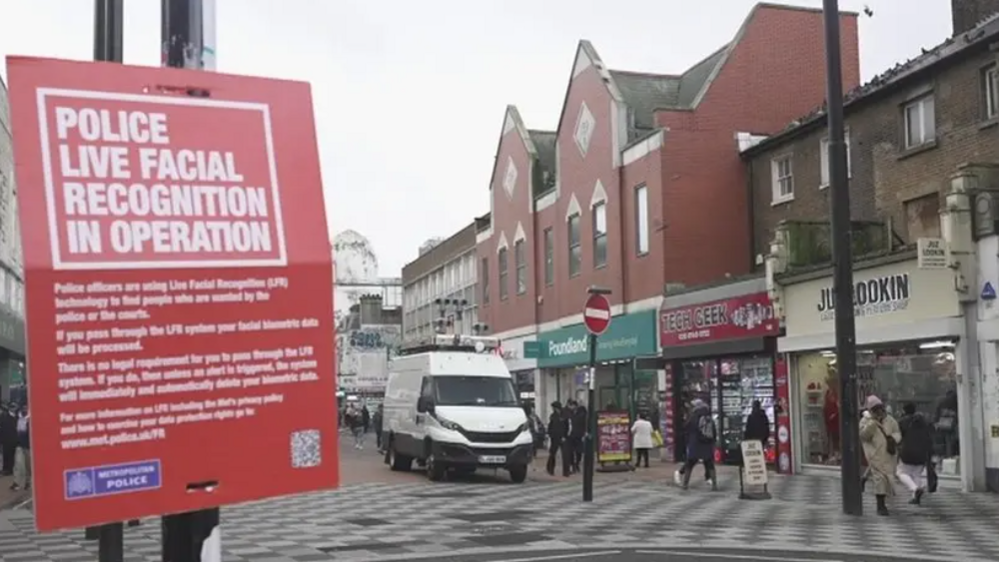
- Published6 October 2023
